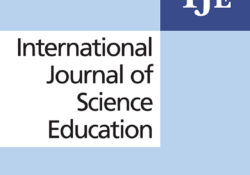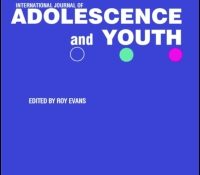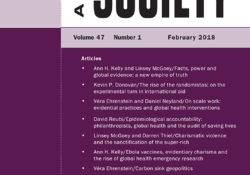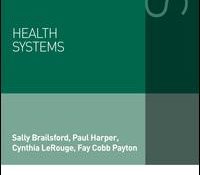
tandfonline.com har udgivet en rapport under søgningen “Teacher Education Mathematics”: ABSTRACT ABSTRACT Policy-makers worldwide are increasingly interested in scaling up evidence-based interventions (EBIs) to larger populations, and implementation scientists are developing frameworks and methodologies for achieving this. But scaling-up does not always produce the desired results. Why not? We aimed to enhance awareness of the various pitfalls to be anticipated when planning scale-up. In lower- and middle-income countries (LMICs), the scale-up of health programs to prevent or respond to outbreaks of communicable diseases has been occurring for many decades. In high-income countries, there is new interest in the scaling up of interventions that address communicable and non-communicable diseases alike. We scanned the literature worldwide on problems encountered when implementing scale-up plans revealed a number of potential pitfalls that we discuss… Continue Reading →
Like this:
Like Loading...

tandfonline.com har udgivet en rapport under søgningen “Teacher Education Mathematics”: ABSTRACT ABSTRACT Recent research on motivation to learn science shows that science teaching usually supports students’ systemising, but not their empathising cognition. In this paper we argue that empathy, with due caution, should be emphasised in science learning more seriously and consistently, particularly in a Science|Environment|Health pedagogy that aims at fostering the mutual benefit between the three interlinked educational fields. After briefly recapitulating research results about the empathising-systemising (E-S) theory and motivation to learn science, the paper describes the science of empathy and then reflects on the opportunities and challenges of introducing empathy into science teaching. Many studies of effective science learning can be found that involve empathising, though this usually is not made explicit. Thus, bringing empathy into play… Continue Reading →
Like this:
Like Loading...
eric.ed.gov har udgivet: This article describes a teacher’s Maths lesson that focuses on numeracy in health and physical education learning area. In the lesson, the students were learning about Directed Numbers, something they often struggle with and a topic where the teacher finds it hard to explain using real life situations when using addition and subtraction. The teacher began the lesson by outlining what students were expected to achieve. The introduction also included revisiting previous work on how to convert an individual’s number of walking paces to kilometres, as well as directions for the activity that was to follow. The teacher wants to emphasise with other teachers that numeracy is not just about number and that there is great potential to address other strands of mathematics within all learning areas.… Continue Reading →
Like this:
Like Loading...
eric.ed.gov har udgivet: This hearing explores the accountability rule that the Department of Education proposed on May 31st. This goes to the heart of the law to fix No Child Left Behind. The Federal Government decided that math and reading test results would determine whether schools and teachers were succeeding or failing. The two main concerns of this hearing are: (1) Does the proposed accountability rule actually get the Federal Government back in the business of setting State academic standards?; and (2) Does the proposed accountability rule get the Federal Government back in the business of deciding which schools are succeeding or failing? This hearing transcript provides a prepared statement from witness John King, Secretary, U.S. Department of Education. This is followed by additional materials, namely Ensuring Equity in ESSA:… Continue Reading →
Like this:
Like Loading...
tandfonline.com har udgivet en rapport under søgningen “Teacher Education Mathematics”: Abstract Abstract There have been concerns about the recent private turn and re-emergence of philanthropies in world health, with many worrying about philanthropies’ perceived lack of transparency and accountability. In contrast, I argue that while the private turn might have led to a decline in democratic or public accountability, it did not bring an end to all forms of accountability. Specifically, I suggest that philanthropists’ involvement in global health has led to the spread of another, new form of accountability: epidemiological accountability. The latter is a combination of two regimes of expertise and practices hitherto kept separate: audit and epidemiology. To substantiate this argument, I draw on my research on the Bloomberg Initiative – a global effort to reduce tobacco… Continue Reading →
Like this:
Like Loading...
tandfonline.com har udgivet en rapport under søgningen “Teacher Education Mathematics”: Disability, Diversity, and Autism: Philosophical Perspectives on Health Link til kilde
Like this:
Like Loading...

tandfonline.com har udgivet en rapport under søgningen “Teacher Education Mathematics”: Abstract Abstract Previous prevention programmes have largely focused on the emotion regulation strategy of cognitive reappraisal. The present study is a feasibility trial that evaluates a prevention programme that teaches cognitive reappraisal, acceptance and problem-solving strategies. Ninety-six Year 10 high school students were randomly allocated to either the intervention or control condition. All participants completed scales evaluating emotion regulation difficulties, depression, anxiety and anger at baseline, post-intervention and at 6-month follow-up. In addition, the intervention condition completed a workshop evaluation questionnaire at post-intervention that included qualitative items. Mixed models for repeated measures and content analysis were used to analyse the data. Results suggested there were no statistical differences between the conditions although effect sizes suggested a small advantage favouring the… Continue Reading →
Like this:
Like Loading...
eric.ed.gov har udgivet: U.S. Federal and state education policies place considerable emphasis on assessing the effects that schools and teachers have on student test score performance. It is important for education policy makers to also consider other factors that can affect student achievement. This study finds that an exogenous school factor, discontinuous health insurance coverage, leads to a deficit in math achievement over time. A sample of Yuma County, Arizona public school students who experienced an illness or injury and whose health insurance coverage status was known were selected for inclusion into the study over five consecutive school years (1999-2003). The longitudinal math achievement trajectory of students who had private health insurance coverage was compared to students who had discontinuous coverage. Net of a student’s poverty status and other background… Continue Reading →
Like this:
Like Loading...
tandfonline.com har udgivet en rapport under søgningen “Teacher Education Mathematics”: Abstract Abstract In response to limited examples of opportunities for state policymakers to learn about and productively discuss the difficult, adaptive challenges of our health system, the Georgia Health Policy Center developed an educational initiative that applies systems thinking to health policymaking. We created the Legislative Health Policy Certificate Program – an in-depth, multi-session series for lawmakers and their staff – concentrating on building systems thinking competencies and health content knowledge by applying a range of systems thinking tools: behavior over time graphs, stock and flow maps, and a system dynamics-based learning lab (a simulatable model of childhood obesity). Legislators were taught to approach policy issues from the big picture, consider changing dynamics, and explore higher-leverage interventions to address Georgia’s… Continue Reading →
Like this:
Like Loading...
tandfonline.com har udgivet en rapport under søgningen “Teacher Education Mathematics”: ABSTRACT ABSTRACT Online and flipped courses are becoming more commonly found across disciplines, including in (bio)-statistics. The literature contains many case studies of instructors reporting on their use of these formats. However, a gap exists in regard to a systematic study of instructors’ implementation of, attitudes on, and recommendations for online or flipped courses in (bio)statistics. We conducted a survey to elicit such responses, and we report here on n = 24 instructors who teach (bio)statistics in the health sciences. These instructors’ courses are described, as well as results summarized for their responses on various aspects of these courses, ranging from the technology they use to whether they would recommend various approaches to teaching colleagues. These findings should be useful… Continue Reading →
Like this:
Like Loading...






